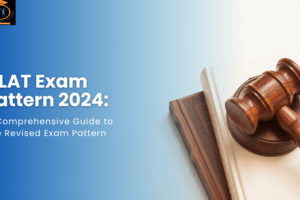
Criminalization of politics in India: Steps taken to by Parliament/government to Prevent It
Introduction
The criminalization of politics refers to the phenomenon where individuals with criminal backgrounds or involved in criminal activities enter and influence the political system. It involves the participation of politicians who have been charged or convicted of criminal offences such as corruption, bribery, fraud. This infiltration of criminal elements into the politics undermines the integrity of political system, erodes public trust and hampers the functioning of democracy. The criminalization of politics can lead to compromised governance, where decisions are driven by personal interests rather than the welfare of the public.
Criminalization of politics is a grave concern that has plagued India’s democratic system for decades. The infiltration of criminals into politics threatens the very fabric of the nation’s governance, impeding progress and undermining public trust. However, recognizing the severity of this issue, the Indian Parliament and government have taken significant steps to curb the criminalization of politics. This article aims to shed light on the problem of criminalization, its consequences, and the measures implemented by authorities to combat this menace.
Consequences of criminalization
Criminal elements enter politics for various reasons, including gaining protection from prosecution, exerting influence over policy decisions, and exploiting power for personal gain. This phenomenon poses a significant threat to democracy, as it undermines the credibility of elected representatives and perpetuates corruption and lawlessness.
The consequences of criminalization of politics are far-reaching and detrimental to the nation’s progress. Firstly, it erodes public trust in the political system, leading to apathy and disillusionment among citizens. Moreover, it hampers effective governance by allowing criminals to manipulate policies and institutions for their own interests. This results in a lack of accountability, compromised law enforcement, and an erosion of the rule of law. Additionally, the presence of criminal elements in politics can lead to increased violence during elections, intimidation of opponents, and a general erosion of democratic values.
Steps Taken by Parliament/ Government
Recognizing the urgency to address this issue, the Parliament and government have implemented several measures to prevent the criminalization of politics in India. Some notable steps include:
- Electoral Reforms
The introduction of electoral reforms has been a crucial step towards reducing criminalization. The Election Commission of India (ECI) has made it mandatory for candidates to disclose their criminal records, financial assets, and liabilities. This transparency helps voters make informed choices while casting their ballots.
2. Disqualification Laws
The Representation of the People Act, 1951, was amended to disqualify individuals convicted of specific offenses from contesting elections. This amendment aimed to prevent criminals from using politics as a shield against prosecution and to deter those with criminal backgrounds from entering politics in the first place.
- Fast Track Courts
To expedite the trial process involving elected representatives facing criminal charges, the government established fast-track courts. These courts prioritize cases against politicians, ensuring timely justice and discouraging potential wrongdoers from entering politics.
- De-criminalization Initiatives
The government has initiated efforts to de-criminalize politics by setting up committees to examine the issue comprehensively. The Law Commission of India, in its 244th report, recommended disqualification of candidates charged with serious criminal offenses. This proposal aims to prevent individuals with a history of criminal activities from influencing the political landscape.
- Political Party Reforms
Recognizing the role of political parties in perpetuating criminalization, reforms have been introduced to ensure transparency and accountability within party structures. Parties are now required to submit details of their funding sources and expenditure to the ECI regularly. This measure aims to curb the influence of illicit money in politics and reduce the entry of criminals into party ranks.
Conclusion
The criminalization of politics remains a significant challenge in India’s democratic framework. However, the Parliament and government have taken noteworthy steps to tackle this issue head-on. By introducing electoral reforms, disqualification laws, fast-track courts, and initiatives for de-criminalization, authorities are making strides towards creating a more accountable and transparent political system. It is crucial for these efforts to continue and for citizens to actively engage in the democratic process to ensure that criminals are kept out of politics, fostering a healthier and more vibrant democracy.
Significance of the topic
The topic “Criminalization of Politics holds great relevance as a topic for an essay for the judicial examination. It has been seen that essays are generally asked about current legal issues. Today, where the democracy of India is threatened because of the inclusion of offenders in politics, it becomes imperative to look through the measures that have been taken to reform the system.
As has been suggested by every judiciary coaching in Jaipur, essays comprise a major part of the syllabus for the judiciary exams. And therefore, one needs to be thorough with all these topics. Judiciary coaching, apart from training students on law subjects, also prepares them for essays by providing appropriate materials. The top judiciary coaching never limit their teachings only to law subjects without analyzing those within the current legal framework.



